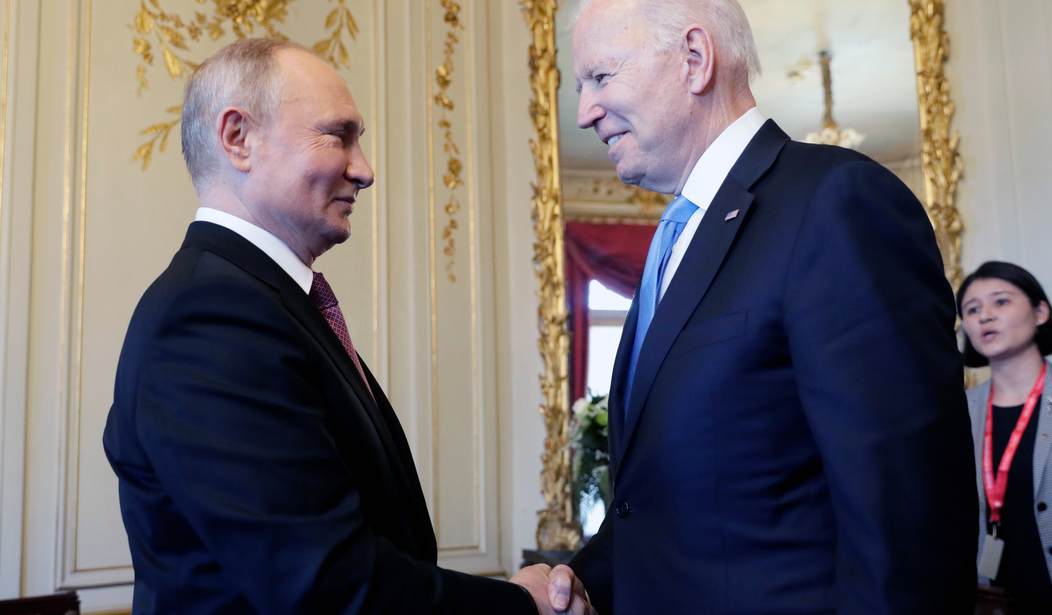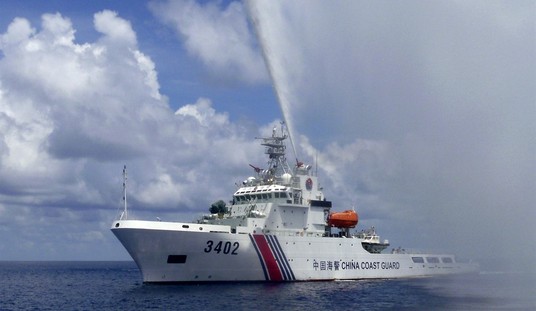The New York Times analysis suffers a bit in its history, but not in its conclusions. Joe Biden insists that the pell-mell retreat out of Afghanistan leaves us with plenty of “over the horizon” capabilities against radical Islamist terrorism. The truth is that American influence and access will either disappear altogether or only exist to the extent that Vladimir Putin allows.
And that won’t come cheaply, if at all:
In the long post-Soviet jostling for power and influence in Central Asia sometimes called the new Great Game, an ever more dominant player has emerged from the chaos and confusion of Afghanistan: Russia, at least in security affairs.
“I wouldn’t say a wounded animal,” the Russian foreign minister, Sergey V. Lavrov, said on Tuesday of the withdrawal of NATO and the U.S. forces from Afghanistan. “But this is a group of countries that in a very painful and difficult way is giving up on the positions in the world they were used to for many decades.”
First off, the Great Game preceded the Soviets. It goes back nearly two centuries and had been largely a battle between Moscow and London for most of that time — really, until the Cold War. It only makes sense in the context of Britain’s access to its imperial colony of India, which led the Brits into its first foray into Afghanistan. They needed to block Russian access to warm-water ports as a way to protect their trade routes, and Afghanistan was supposed to provide an obstacle to Russian expansion toward Arabian Sea.
We all know how that adventure in Afghanistan ended, and the independence of India and Pakistan made it mostly moot by the late 1940s. The Soviets later tried to absorb Afghanistan to protect its southern “republics,” and we all know how that ended. And thanks to the abject humiliation of the US at the hands of the Taliban over the past week, we can read the writing on the walls of the surrounding Central Asian republics:
The strengthening of Russia’s position in Central Asian security matters is part of a broader shift brought about by the Taliban’s rise to power. Russia, China and Pakistan all stand to gain influence in regional affairs with the West’s withdrawal, while the United States and India stand to lose.
“I’m thinking of this as a post-Western or post-U.S. space now,” said Alexander Cooley, director of the Harriman Institute at Columbia University, and an authority on Central Asia. “It’s a region transforming itself without the United States.”
And largely to Russia’s benefit.
All it takes is one look at a map to grasp the folly of the “over the horizon” argument. Where will that horizon be located, anyway?

Exactly where are we positioned now to do anything in Afghanistan? We had overflight agreements with Pakistan, but they have no reason to renew those now that we’ve skedaddled. You can’t do overflights through Iran for obvious reasons. It’s perhaps possible that we can thread a needle through India and Tajikistan, but that comes perilously close to China as well as Pakistan, and Russia will have something to say to the Tajiks about it as well. Even for reprisal attacks, we will either have to commit acts of war to violate airspaces or use cruise missiles with the lack of accuracy on targets. We’ll be back to sending a missile up a camel’s butt, to use George W. Bush’s colorful metaphor.
That applies not just to attacks on terror operations, but also to intel gathering and supplying any rebellions that might arise against the Taliban. While we remained in Afghanistan and signaled a continuing commitment there, the neighboring nations had at least some reason to help us with lines of communication. Former Soviet republics such as Kyrgyzstan, Tajikistan, and Uzbekistan have at times given us ways to resupply, but more importantly to strike if necessary, at least in theory. Russia has pressured us and these republics for many years to get out, and now that we have, Putin has become the only really reliable partner in the region, unless China wants to cross Russia up and get there first.
And that would be even worse news.
For the last four years, the media has engaged in a social panic over Russia and Donald Trump’s supposed collusion with them. However, during those same four years, Trump kept oil prices low to starve Putin of cash and fought hard diplomatically to cut off the Nordstream 2 pipeline to keep that option closed for Putin. Joe Biden has done everything in his power to embolden, enrich, and now concede an entire region to Putin — not because he’s corrupt, but because Biden is an incompetent fool who can’t think past his campaign slogans, and has surrounded himself with lackeys without enough intestinal fortitude to point this out.
It’s game over for American influence in central Asia … and one has to suspect many other place as well.








Join the conversation as a VIP Member